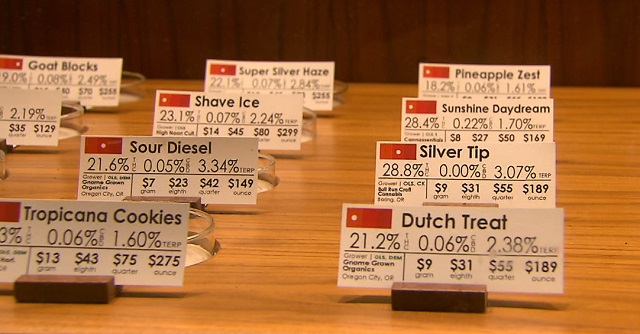PORTLAND, Ore. (KOIN) — Cannabis businesses in Portland will soon have the opportunity to apply for grants under an emergency relief fund approved by the city council on Wednesday.
The $1.3 million Cannabis Emergency Relief Fund, which was initially approved in June in the city’s budget, will allow cannabis workers and companies to have grants of up to $5,000 and $25,000, respectively.
The revenue from the approved fund, which was first reported by The Oregonian, is based on taxes collected from recreational cannabis, according to city documents.
The fund was created in response to rising crime, hardships related to the ongoing COVID-19 pandemic and fallout from wildfires as experienced by the cash-based industry, documents stated.
According to the program proposal, 185 Portland cannabis shops reported robberies and property damage during the pandemic and amid 2020’s civil unrest.

“These cash-based businesses were vulnerable to what would become 115% increase in violent crime reported from the previous unrest and vandalism due to civil unrest seen around the city and country,” said Christina Coursey, the Cannabis Emergency Relief Fund (CERF) licensing and policy coordinator.
Beau Whitney of Whitney Economics said that’s because a lack of access to banking for a lot of these shops means they have to be cash-only, which makes them a target for those kind of crimes.
He added heavy taxation also makes it tough for these businesses to thrive.
“As of last year, the average retailer generated about $1.4 million in revenue over a 12-month period,” Whitney said. “In order to remain economically viable, retailers need $2.5 million.”
Mayor Ted Wheeler said this is an easy ordinance to support.
“Obviously the cannabis industry is critically important to the small business economy in Portland,” the mayor said.
That ordinance states applicants should “be part of a historically disadvantaged population or annual income does not exceed 80% of median income for City of Portland metro area.”
“The reality is,” Commissioner Jo Ann Hardesty said, “we have to invest in businesses who are supporting in BIPOC community members.”